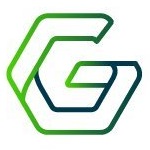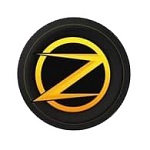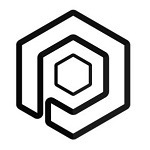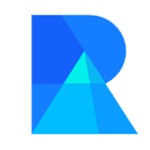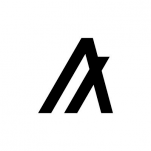Algorand Ecosystem
| Projects | Projects | Status | Date start | Raised | Launchpad | Ecosystem | X score | Interest lvl | Industry | |||
|---|---|---|---|---|---|---|---|---|---|---|---|---|
ICO | Dec 08, 2024 | Gaming +3 | ||||||||||
IDO Past | Jun 28, 2023 | $1,5M | Blockchain +1 | |||||||||
ICO IEO Past | Sep 12, 2022 | $50M | Finance +1 | |||||||||
IDO Past | Feb 09, 2022 | $1,6M | Gaming +1 | |||||||||
ICO IDO Past | Sep 15, 2021 | $6,45M | Art & Music +3 | |||||||||
STO IEO Past | Sep 15, 2020 | Trading & Investing +1 | ||||||||||
ICO Past | Jul 16, 2020 | Crowdfunding & Lending | ||||||||||
ICO IDO IEO Past | Jul 20, 2021 | Supply & Logistics | ||||||||||
ICO | TBA | Finance | ||||||||||
What is Algorand network
Algorand is a blockchain application offering efficient solutions built on Pure Proof-of-Stake (PPoS). This model makes it popular among companies, developers and investors.
The highly ambitious goal of Algorand is to create an almost infinitely scalable and secure system.
Blockchain aims to address the inefficient registries that underpin most every blockchain; Bitcoin, Ethereum or any other. These include scalability, low power consumption and high transaction costs. Algorand effectively mixes centralized and decentralized blockchain projects.
Algorand was born in 2017. It was developed by MIT professor Silvio Micali.
Algorand formative period came in 2018-2019. Here’s how the history of the project’s development looks like:
- February 1, 2018. The project raised $4 million seed investment from Pillar and Union Square Ventures.
- July 20, 2018. Testnet launched.
- October 24, 2018. Project raised an additional $62 million in investment from a broad group of investors. Developers deployed funding to prepare for a full blockchain launch.
- February 1, 2019. Launch of a platform for developers interested in creating a borderless economy based on Algorand tools.
- April 16, 2019. Project developers made the testnet public.
- June 19, 2019. Launch of the project’s main network.
Investors & partners
Over the course of the project’s existence, it has had many notable partners.
- Multicoin Capital
- Union Square Ventures (USV)
- DWF Labs
- Nirvana Capital
- Continue Capital
- Lemniscap
- NGC Ventures
- VLane Capital
- Eden Block and more.
Partners that are part of the Algorand ecosystem include:
- Global Blockchain Business Council
- DeRec Alliance
- NASSCOM
- OpenWallet Foundation
- SODA and more.
Key functional of Algorand blockchain
Judging from the official data, Algorand supports RWA, DeFi segment, implementation of tracking solutions and many other areas. Note that thanks to its innovative approach, Algorand is able to process up to 1,000 TPS with minimal fees. As a result, Algorand users can create DeFi protocols and run dApps capable of serving millions of users. Notably, Algorand has a “two-layer” system. On the first layer it is possible to create dapps and smart-contracts. Also layer-1 is responsible for transaction processing in the project network.
The second layer (layer-2) is responsible for processing technical smart contracts and complex offchain transactions. Another “layer” reduces the load on the project network, preventing the growth of commissions and bandwidth reduction.
Also, the system actually works through member nodes and relay-nodes, while leveraging the Algorand Virtual Machine (AVM) for communication.
Nodes that are participating get rewarded for confirming the operations. At this time, the relay nodes act as network connectors.
It’s worth recognizing that Algorand core mechanisms are secure, fast, and elastic. This makes them an incredible opportunity for DApps and beyond.
One of the outstanding aspects of Algorand contracts is their efficiency. At the same time, developers can create contracts without unnecessary costs and delays.
Block generation scheme in Algorand combined with the Byzantine agreement protocol:
- Suggestion. The purse leader is randomly selected to propose a block for approval;
- Soft Voting. A random group of validators select one block from those proposed, which is sent for validation;
- Confirmation voting. Other random groups validate new blocks for over-spending or other issues, and then confirm.
Verifiable Random Function (VRF) technology is responsible for selecting validators, with a scheme within it; the more ALGO tokens in the wallet, the more likely it is to be selected.
Key advantages of Algorand
- Innovative algorithm Pure Proof of Stake (PPoS)
- Smart-Contract Support
- Implemented Algorand Virtual Machine
- Scalability
- Enables creation of different DeFi
- Secure management and user participation
Token ALGO
ALGO is a proprietary crypto token of Algorand system. ALGO is required for staking, to pay fees and run the relay nodes. It is also the tool in the Algorand ecosystem for governance token.
Conclusion
Algorand is a powerful and promising blockchain project focused on solving fundamental problems of existing blockchain platforms. The combination of innovative technology and strategic vision makes Algorand an attractive ecosystem for advanced users and investors interested in the technological and economic potential of blockchain.

